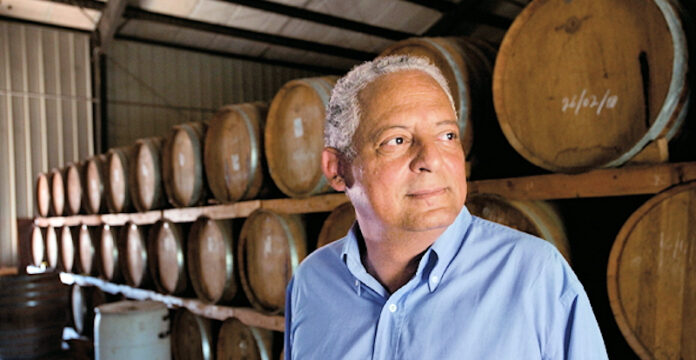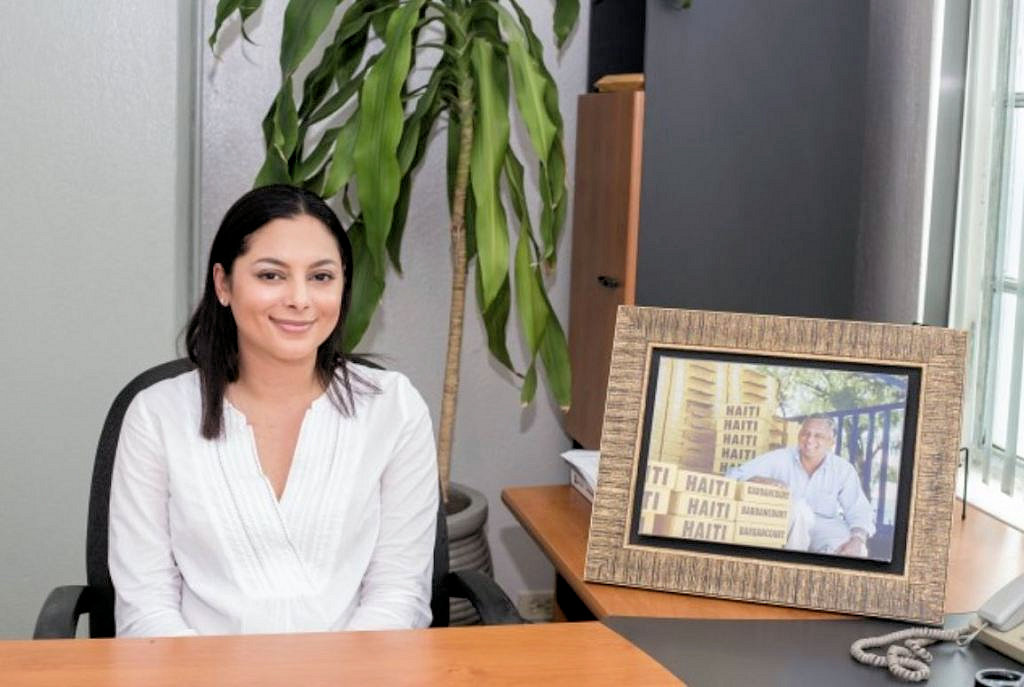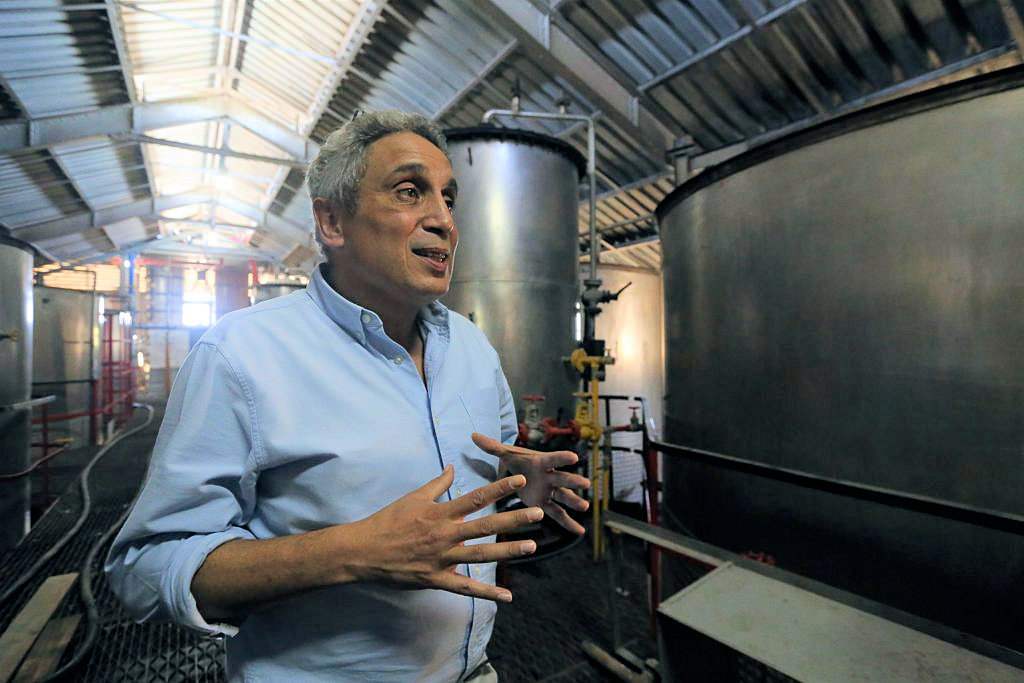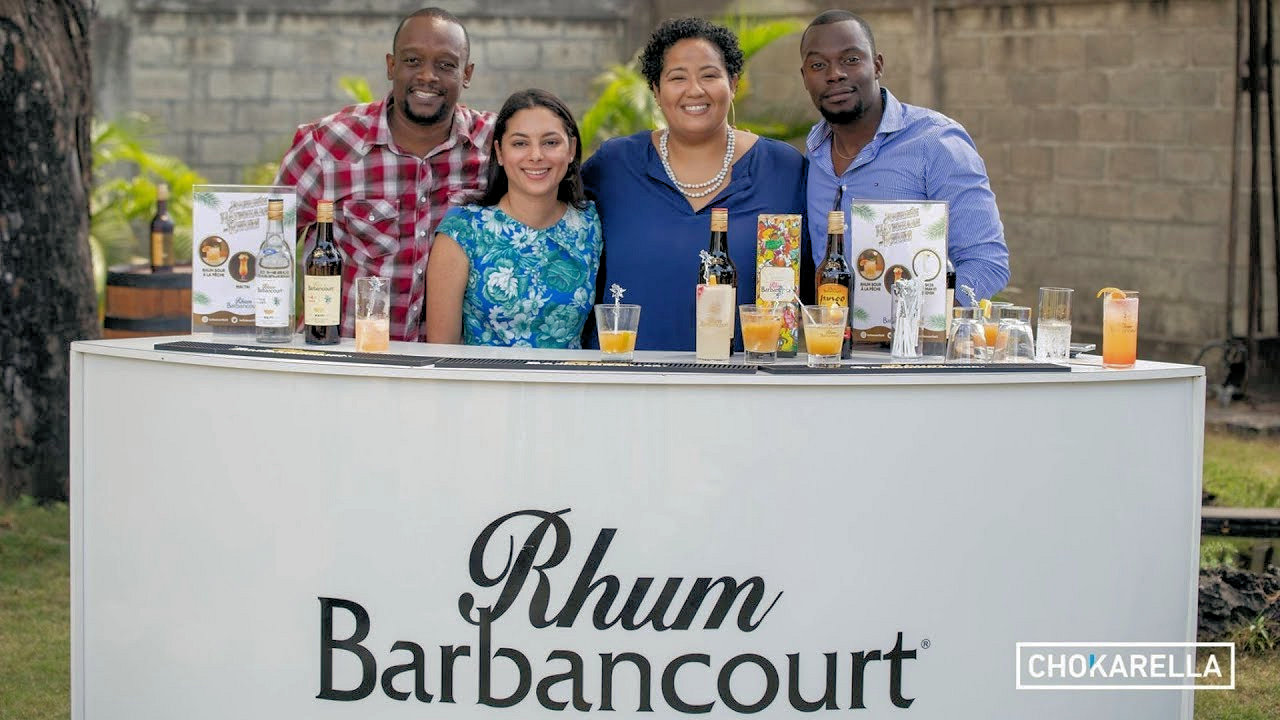
For more than 150 years, Haiti’s most cherished spirit, the rum produced by Société du Rhum Barbancourt, has been a part of many Haitian family gatherings and traditions. And when Haitian families began migrating throughout the world, they brought the distinctive brand of smooth sugar cane rum as a staple for their households abroad.
Marie St. Louis, 39, of South Carolina, said her mother, her grandmother, and her great-grandmother imbibed the rum on special occasions and used it in herbal remedies.
“It’s in our jokes, it’s in our rhymes, in our nursery lullabies,” said St. Louis, a U.S. Army medical operations officer, of Rhum Barbancourt. “It is something that we hold very, very dear.”
But in recent years, legal battles for leadership of the Port-au-Prince company have threatened to destabilize the family-owned operation. As of June, Nathalie Delphine Gardère, 36, the only child of the late Thierry Gardère, controls the enterprise as general director.

She is the fifth in the Gardère family line to run the company, founded by Duprè Barbancourt in 1862. Barbancourt’s wife, Nathalie Gardère, took control when he died in 1907, later passing the company to her nephew. Since 1946, company directors have passed on leadership through their children in the Gardère family.
Barbancourt, an $18 million business, has survived Haiti’s tumultuous history of coups, embargoes, and natural disasters. Even after the 2010 magnitude 7.0 earthquake halted bottling and shipping, the company resumed operations just four months later.
The company’s rise through the rubble of the post-earthquake period capped General Director Thierry Gardère’s 27 years of successful leadership. His death in March 2017 led to the latest tumult for Barbancourt: a family legal battle for company control that pitted his only child and his siblings against one another.
All in the family: Tit-for-tat legal challenges
When Thierry Gardère died, his wife Muriel Gardère passed on the 37.25% of Barbancourt’s shares she inherited to their daughter in October 2017.
These shares became effective in June 2018, giving Delphine Gardère control of the company at that time, Delphine Gardère’s personal attorney Salim Succar said, speaking to The Haitian Times on her behalf. The transfer meant she could break the two-thirds majority needed for company decisions to pass, he said.
But three other shareholders ‒ Thierry Gardère’s siblings Françoise Gardère and Jean-Marc Gardère and cousin Michel Gardère, who collectively own a 62.75% stake ‒ did not see it that way. By the end of August 2018, they ousted Delphine Gardère, and Michel and Jean-Marc Gardère subsequently became general partners.
In a letter published in Haitian media, Jean-Marc Gardère said the majority shareholders collectively never approved Delphine Gardère as company head and that receiving her mother’s shares did not confer such authority.
Attorney Aviol Fleurant, who counseled Michel and Jean-Marc Gardère, said via email that he required authorization from Barbancourt’s partners in order to comment. He did not respond to subsequent requests.
Succar said that company bylaws provide for effective minority control, noting that Thierry Gardère led the company with a minority of its shares.

Michel and Jean-Marc Gardère also used illegal means to regain control of the company, Succar said. They pressured Thierry Gardère’s widow into admitting she was not of sound mind when she passed on her shares to her daughter. Then, Michel and Jean-Marc Gardère secured a judgment that allowed them to reinstate the widow as a shareholder and subsequently take over control in September 2018.
In response, Delphine Gardère sued her mother in July 2019 to regain control.
“What we did is we went to arbitration, and we attacked the mother based on her false statements and won,” Succar said.
In March 2020, the Chamber of Conciliation and Arbitration of Haiti (CCAH) issued a decision giving Delphine Gardère full responsibility to manage the company, allowing her to officially take control on Jun. 4, 2020.
However, between the time of the decision and the new leader stepping into the role, the former general partners mounted a new legal challenge in April 2020 over alleged fraud and embezzlement.
They claimed that the late Thierry Gardère and his widow Muriel Gardère allegedly signed a contract, without the other shareholders’ knowledge, that would have allowed the couple to earn commissions. Fleurant also called out Delphine Gardère for not acknowledging the existence of this alleged contract.
Succar said there was no proof for this claim, so that court challenge never reached a judge.
By July, the family members had agreed to sell their shares to Delphine Gardère. If the sale and purchase agreement goes through, Succar said, Delphine Gardère will own 100% of Barbancourt’s shares in October 2020.
“At the end of the day, there was no way out but for [the other shareholders] to find a settlement,” Succar said.
The company did not return multiple requests for comment made via its website and public social media pages.
An indispensable brand
As one of Haiti’s oldest and most loved brands, Barbancourt is renowned for its taste and quality, economic impact, and role as a cultural ambassador abroad.
Barbancourt has won numerous awards over the years. In 2012, it was dubbed a Special Category Rum of the Year by Rum Journal. In 2017, it ranked second on the rating website Alcohol Aficionado’s list of the 10 best silver rum brands.
In 2018, Barbancourt won USA Today’s Best Rum Distillery in the Caribbean award, beating out such better-known brands as Bacardi and Mount Gay.

As an economic engine, the Financial Times has reported from 2015 figures that Barbancourt employs 400 people, draws global sales of $18 million per year, and uses small farmers to supply roughly 80% of the sugar cane it purchases. Most sales, 70%, came from inside Haiti.
And the U.S. is its most important export market, according to its marketing agency.
The roughly 400 people Barbancourt employs swells to 500 during the busier harvesting season and the company has purchased sugar cane from more than 100 farmers annually.
Since the family feud began, avid Barbancourt consumers reported having difficulty finding the rum at times on shelves in Port-au-Prince. Succar acknowledged that the dispute has affected Barbancourt’s productivity and stability, but he did not provide specific details. Despite the issues, he said, Barbancourt has maintained its sterling reputation.
Consumers, partners, and supporters alike agree.
Charles Edouard-Denis, a seafood export business owner based in Pétion-ville, said Barbancourt plays an important role in supporting agricultural producers in Haiti. Demand for it appears to be strong from both suppliers and consumers.
“Most people, when they travel from Haiti, buy a case or a bottle of Rhum Barbancourt to give as a gift to the people they are going to meet,” Edouard-Denis said.
For fans like St. Louis, the South Carolina resident, the important thing is keeping the spirits company alive for generations to come.
“Your kitchen is not complete unless you have a bottle of Barbancourt,” St. Louis said. “Almost every Haitian carries or has a bottle in their home.”
This article was first published on the site of the Haitian Times.









